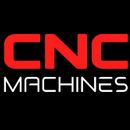AI Integration in American Manufacturing: Transforming Toolpath Optimization, Predictive Maintenance, and Supply Chain Planning

AI Integration in American Manufacturing: Transforming Toolpath Optimization, Predictive Maintenance, and Supply Chain Planning
Artificial Intelligence (AI) is reshaping the landscape of American manufacturing. By integrating AI into various facets of production, manufacturers are achieving unprecedented levels of efficiency, precision, and adaptability. This article delves into how AI is enhancing toolpath optimization, predictive maintenance, and supply chain planning, driving the evolution of smart CNC machining and predictive analytics in factories.
1. AI-Driven Toolpath Optimization in CNC Machining
Traditional CNC machining relies on predefined toolpaths, which may not account for real-time variables affecting the machining process. AI introduces dynamic toolpath optimization by analyzing vast datasets, including material properties, machine conditions, and historical performance. This enables:
- Enhanced Precision: AI algorithms adjust toolpaths in real-time to maintain tight tolerances.
- Reduced Cycle Times: Optimized paths lead to faster machining processes.
- Extended Tool Life: By minimizing unnecessary tool movements, wear and tear are reduced.
For instance, AI-driven systems can analyze sensor data to detect anomalies during machining, allowing immediate adjustments to prevent defects.
2. Predictive Maintenance with AI
Unplanned equipment downtime can be costly. AI enhances predictive maintenance by continuously monitoring machinery through sensors that track vibrations, temperatures, and other critical parameters. Machine learning models analyze this data to predict potential failures before they occur, facilitating:
- Proactive Repairs: Maintenance can be scheduled during non-peak hours, minimizing disruptions.
- Cost Savings: Preventing major breakdowns reduces repair costs and extends equipment lifespan.
- Improved Safety: Early detection of issues mitigates risks associated with equipment failure.
Companies like Aquant and Gecko Robotics are leveraging AI to transform maintenance strategies, resulting in significant reductions in downtime and maintenance costs.
3. AI-Enhanced Supply Chain Planning
Supply chain efficiency is critical in manufacturing. AI contributes to smarter supply chain planning by:
- Demand Forecasting: Analyzing market trends and historical data to predict product demand.
- Inventory Optimization: Ensuring optimal stock levels to meet production needs without overstocking.
- Risk Management: Identifying potential disruptions and suggesting contingency plans.
By integrating AI into supply chain management, manufacturers can respond swiftly to changes, reduce waste, and improve overall efficiency.
Conclusion
The integration of AI into American manufacturing is not just an advancement—it's a transformation. From optimizing CNC machining processes to enabling predictive maintenance and refining supply chain strategies, AI is at the forefront of driving efficiency and innovation. As the industry continues to evolve, embracing AI technologies will be pivotal for manufacturers aiming to stay competitive in a rapidly changing market.


